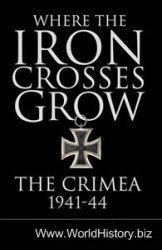The seventeenth century Dutch philosopher, Baruch (Benedictus) Spinoza could not be more different than Thomas on the last point. God in his view is not a personal deity at all, and all divine activity is natural. In his Tractatus theologico-politicus, Spinoza sets out to overturn the project of the medieval political philosophical tradition in general, and Maimonides’ project in particular. For what is this project if not to understand the content, and not just the phenomenon, of biblical revelation philosophically, and show how the religion that was given by way of revelation promoted human perfection within a polity in an ideal manner. The foundation for this approach is the argument that revelation is only received by one who is intellectually perfect. On this basis one could read Scripture as containing theoretical truths, albeit often in metaphorical form, and one could see its commands as providing the ideal path to ultimate felicity. This approach to Scripture is undermined by the argument, which Spinoza goes to great lengths to make regarding the Old Testament in his Tractatus theologico-politicus, that the characterization Maimonides draws of non-prophetic lawgivers - namely, individuals with a perfect imaginative faculty but imperfect intellect, hence they did not know where true perfection lies and how to direct the nation to it - is true also of all the biblical prophets including Moses. According to Spinoza, Moses possessed a perfect imagination but far from perfect intellect. He knew how to organize a nation of slaves but not how to lead them to a perfection that he himself lacked. What follows is that the Old Testament cannot be a source for theoretical truths, nor does it direct one on the path to felicity. It is a law that enabled the Jews to attain social stability for awhile and nothing more. In other words, it could aim no higher than earthly good. If Moses presents the law he laid down as designed to do more than that, and that he received this law by hearing an audible divine voice, then he was simply deluding himself and others in Spinoza’s view.
All the terms we have used till now take on different meanings in the context of Spinoza’s philosophy. Laws that are based on historical revelation, that is the product of those with superior imagination, do not deserve the epithet ‘‘divine.’’ Divine law is equated with natural law, which for Spinoza is the law that is known by the light of reason rather than by revelation. In other words, true revelation is the knowledge attained by the great philosophers and not the knowledge attained by the prophets. Furthermore all particular legislations cannot be considered to be divine for divine/natural law, according to Spinoza, has the following traits: (1) it is universal; (2) it is not dependent upon historical narrative; (3) it does not command ritual; (4) ultimate reward is integral to its fulfillment, that is to say it is the natural consequence of living according to the light of reason (TTP, chap. 4). While it is true that Spinoza attempts to interpret the New Testament as divine law, and this view brings him into an affinity with Thomas Aquinas, his interpretation of the New Testament shares little with Thomas’ view. For Spinoza, Jesus, as opposed to Moses, is the paradigm ofthe true philosopher teaching the universal truths of reason, nothing more.
In a crucial sense, Spinoza shares much in common with al-Farabi, and with this point we come full circle. For both al-Farabi and Spinoza the divine and the natural are synonymous and there is no expression of divine will outside of the order of nature. Al-Farabi’s first ruler is the perfect philosopher. Divine law for al-Farabi is the product of a perfect intellect and the ultimate expression
Of natural law in the context of any given society. If one rereads the speech of the philosopher at the beginning of the Kuzari cited at the beginning of this article, one might for a moment think that this philosopher is a proto-Spi-nozist. Yet for all the similarities between al-FarabI and Spinoza there remains a great abyss between these two thinkers. Al-FarabI accepts the Platonic model of the philosopher king and applies it to revelatory religion. He develops a model by which the revelatory religions can be viewed as expressions of philosophy and as directing their adherents to true felicity. It is the tie between religion and philosophy that Spinoza seeks to break; it is the view that religious law leads to true felicity, and hence should be the law of the state, that Spinoza writes his theological-political treatise to combat. Al-FarabI maintains the optimistic Platonic view that the state can be ordered to actively promote true human perfection. Maimonides redefines Judaism accordingly, going so far as to dogmatize it in the attempt to convey the opinions, and not just the actions, that should be accepted by all. Spinoza’s goal is the more modest one of making society safe for philosophers by not interfering with their pursuit of truth. For him this cannot be accomplished by understanding Scripture philosophically, let alone as providing theoretical truths closed to philosophy, but by undermining the authority of Scripture in teaching any theoretical truths or laying down the path society must follow. Thus, Spinoza sets the course for a goal alien to al-FarabI, and certainly to most of the medieval political philosophical tradition, namely, liberal secular society no longer bound to the idea of revelatory religion but to human/divine reason alone.




 World History
World History









